Ask ten people what their initial reaction to the recent COVID-19 pandemic was, and you’ll likely receive ten unique answers. For some, it was simply to abide by local municipal guidance. Others took a more laissez-faire approach and went about their daily lives as though nothing was out of the ordinary. But for many others, a disease that has quickly covered the entire world and brought the global economy to a standstill was their cue to escape the pandemonium of a densely populated city and find their new niche in life closer to nature. The same holds true for the skyrocketing cost of living in dense urban areas. Home prices on the rise and inflation with no end in sight, has many people considering the idea of moving to the country.
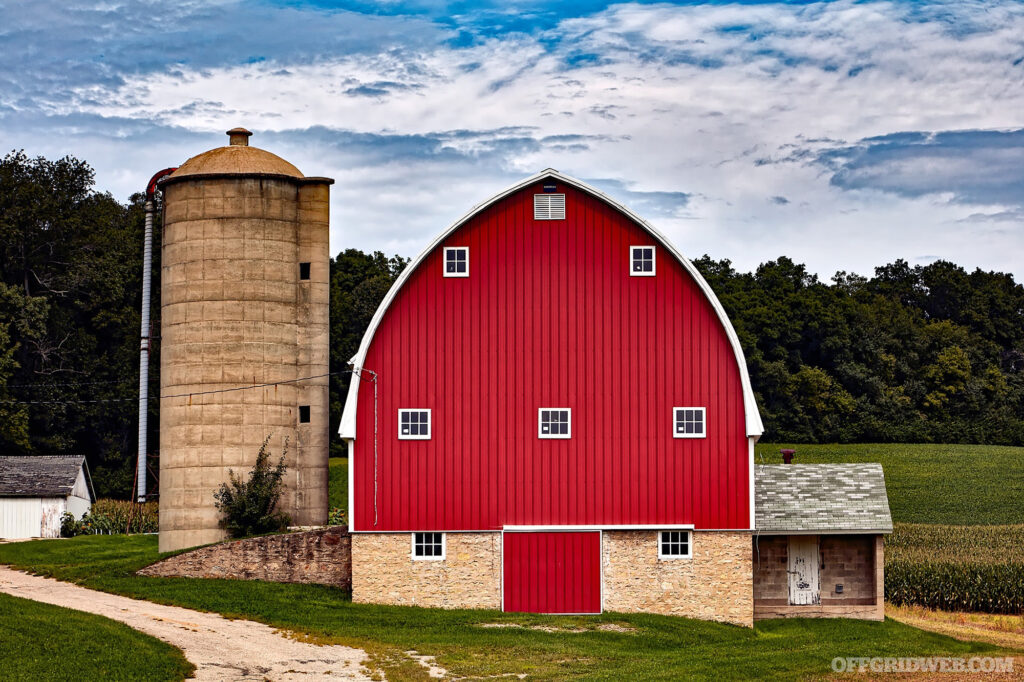
Above: Moving to the country comes with a lot of freedom, and a lot of work. Simply maintaining buildings without the assistance of a landlord can be more than a lot of people can handle.
It’s an appealing proposition to be sure. Fewer people, wide open spaces, the beautiful scenery — the list of benefits goes on. Another important aspect of rural life is that it’s more difficult to control. Recent events have shown that a city under quarantine can be more easily policed. Higher population density means restrictions can be more efficiently implemented with less effort on behalf of the enforcers. No one is going to closely monitor someone living on a hobby farm, miles away from the nearest neighbors, unless they are breaking bad out in the barn. So then, why are people not fleeing en masse to the hills and abandoning the circumstances George Orwell envisioned in his nightmares? Whether you’re looking for land to feed your family or to escape the tedium of the rat race, there’s no shortage of considerations that must be made. So, let’s dive right in and take a look at some of those issues.

Above: Packing up all of your worldly possessions can be stressful. But it can also be liberating to get rid of things you don't really need.
The Good, The Bad, and the Ugly
There are two sides to every coin and living in a remote area is no exception — it has pros and cons. The same can be said for living in an urban setting. One of the biggest issues is access to goods and services. Some folks living in rural areas have to make doing any kind of shopping, beyond basic necessities, a near vacation event. Instead of going to the same local convenience store every day, people in rural communities will often take a day off and travel for an hour or more just to get to the nearest Target or Walgreens. Almost everyone living in remote areas must make do with what they have for longer periods of time and forgo the convenience of having many nearby options to visit on a whim.
This is also true for services such as healthcare, dentistry or auto repair. In a big city, it is easy to scope out a few online reviews and find the right practitioner to fit your needs. In the country, you may not even have a clinic or repair shop anywhere near your location. If you are fortunate to have the service you require nearby, it’s the same one everyone else uses, regardless of how great or poor their performance is. Because of an abundance of competition in urban areas, if someone is providing a mediocre service, they will not last long as their potential customers wise up and find someone better. But in a rural location, if someone has to choose between mediocrity or spending $100 in gas and food traveling to the next nearest option, mediocrity will probably win.

Above: It takes a while for modernization to trickle out to the more remote regions of the country. Available tools and medicines may seem like ancient technology compared to what you may be used to in the city.
Children are another matter entirely. Rural areas do not have an abundance of choices when it comes to schooling, and many children have to be bussed to more populated areas just to attend. These bus rides can be long, and some young ones spend hours each day just riding the bus back and forth. Don’t like their teachers or the curriculum? Too bad! Your child is stuck with it unless you want to fork out the money and time transporting them somewhere else on your own. However, the reverse is also true, as smaller communities mean smaller class sizes, and the quality of education can be phenomenal. It all depends on the standards the local education system holds themselves to. If you're a parent, it is worth your time researching what school is best for you child.
Most of us are aware that there are some neighborhoods you just shouldn’t find yourself in. Maybe there are issues with illegal substances, human trafficking, or any number of nefarious activities detrimental to a quality life. Don’t think that moving to a remote location will completely eliminate this. One of the most notorious bootleggers of his era, Al Capone traveled from Chicago to Northern Michigan to lie low when the police where hot on his trail. The fact that he smuggled Canadian whiskey through the North American wilderness, sometimes with the help of his connections in the Coast Guard, is well known. Ted Kaczynski isolated himself by living in the most isolated area he could find. If you are up to something illegal, there is no better place to conduct operations than a remote wilderness area. Even a place several miles out of town in Midwest farmland affords more privacy than any urban or suburban location.
Climate can play a big role in the decision-making process and it would be in your best interests to determine if the weather patterns where you want to move suit your style. An area with lush, green summers could be inundated with insurmountable snow in the winters. The perfect spot for a ranch location could be smack dab in the middle of Tornado Alley. Prone to depressive moods? Maybe you should avoid the rainy season in the Northwest, or areas with longer winter seasons. Then again, maybe you are up to the adventure of something new! One man’s shovel–induced hernia is another man’s Nordic Skiing paradise.
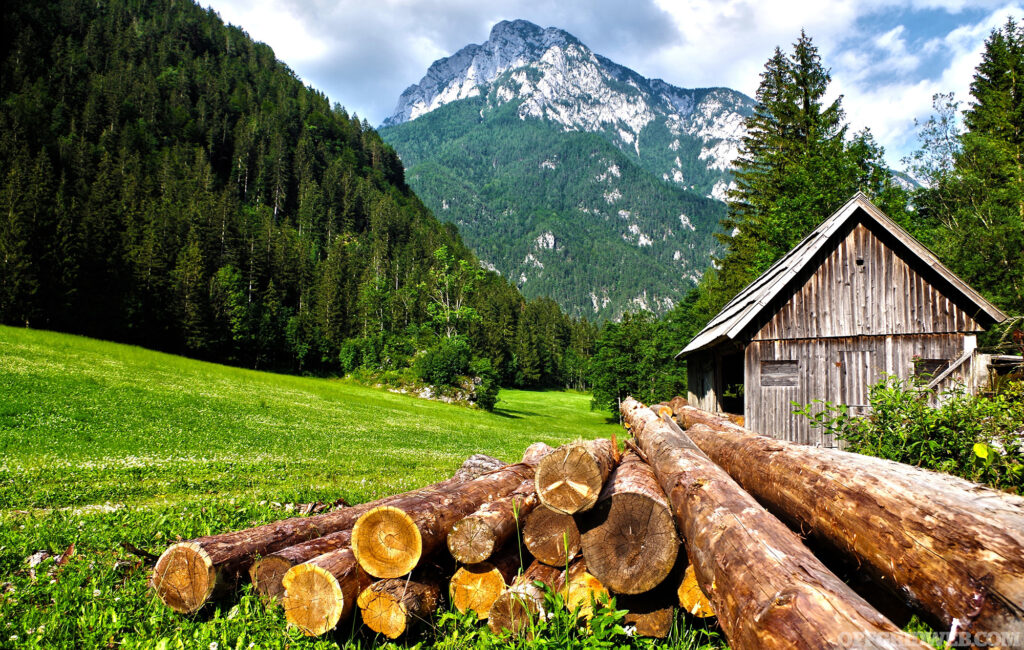
Above: Perhaps utilities is something you take for granted. Some rural areas heat their homes with processed firewood, or wood pellets and coal. Many homes in the countryside pump their water directly out of the ground via well-pumps.
A great idea is to make a list of pros and cons, just to get the ol’ noodle thinking about what you may be getting into. Realize that when you jot down a list like this, it will never be all–inclusive, and things will come up along the way that you didn’t expect. But having an understanding of what you’re getting yourself into will prevent any catastrophic failures. It’s also important to sit down with everyone who would be affected by this important decision and have them weigh in with their thoughts and feelings. That way, when you look over your list, you can make the most logical decision.
Deciding to Move
So, let’s say you have made your decision, and after weighing all the pros and cons, the scales tip in favor of moving. What next? Make sure you know exactly why you’re moving and do some serious research. Many excitedly move to their aesthetically appealing “dream location” and quickly discover that they cannot easily provide for their families. Does moving mean a cut in pay? Are you willing to give up the occupation you are currently working in and possibly settle for something less sophisticated? Can you give up easily accessible high-speed internet for an area that can only support DSL and spotty cell service? And if so, is it worth it?
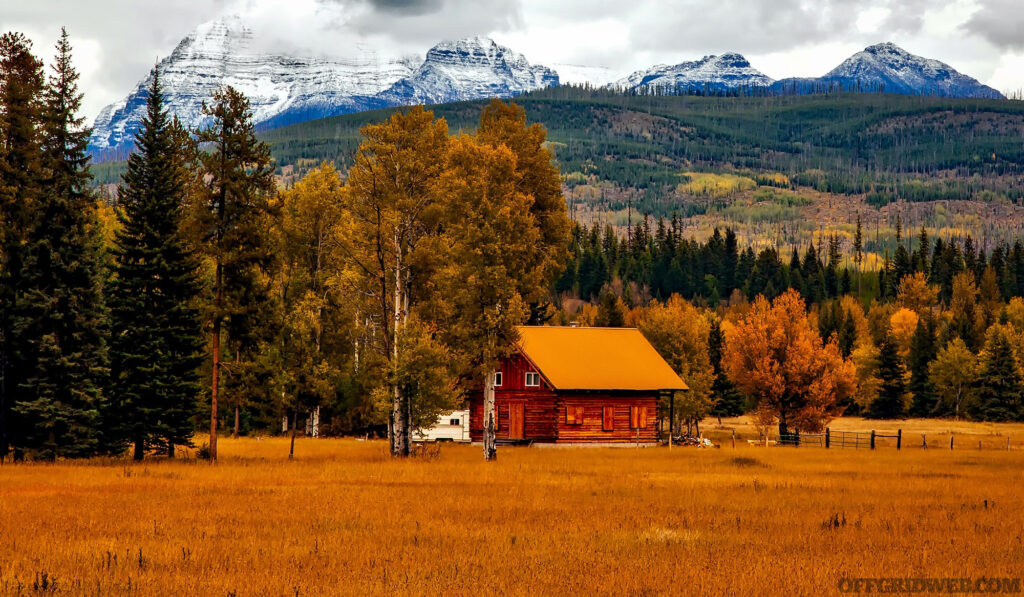
Above: It's calm, quiet and peaceful, but the farther the location from an urban center, the more difficult it is to use amenities that make life easier.
One of the best ways to determine if a move to someplace more rural is financially viable is to apply for jobs in the area and see if you can obtain one. Often, businesses in remote settings hire people they know and grew up with nearby, just to help their neighbors stay gainfully employed. And in some instances, they may even pass over someone more qualified just to do this. In cases like this, those who cannot find work and refuse to give up the country setting, must commute to their jobs — sometimes for hours each way. If you are moving to escape the crowds and the air pollution, maybe having extra travel time is worth it. Lots of people have to do this if they live in the suburbs. Then again, putting extra wear and tear on a vehicle may cancel out any benefits. It can be confusing to think about all of the aspects involved, but the more time you dedicate to focusing on the issues, the more you can be certain that the decision you are making is the right one for you and your family.
Those who want a peaceful retirement, or a quieter way of life for their family, will find that rural life is a no-brainer. In rural communities, most neighbors look out for each other and lend a helping hand whenever they are able to. In our experience, people living in the country can be some of the most generous and kindhearted you will ever have the pleasure to meet. But evil exists everywhere, even in the most isolated of places.
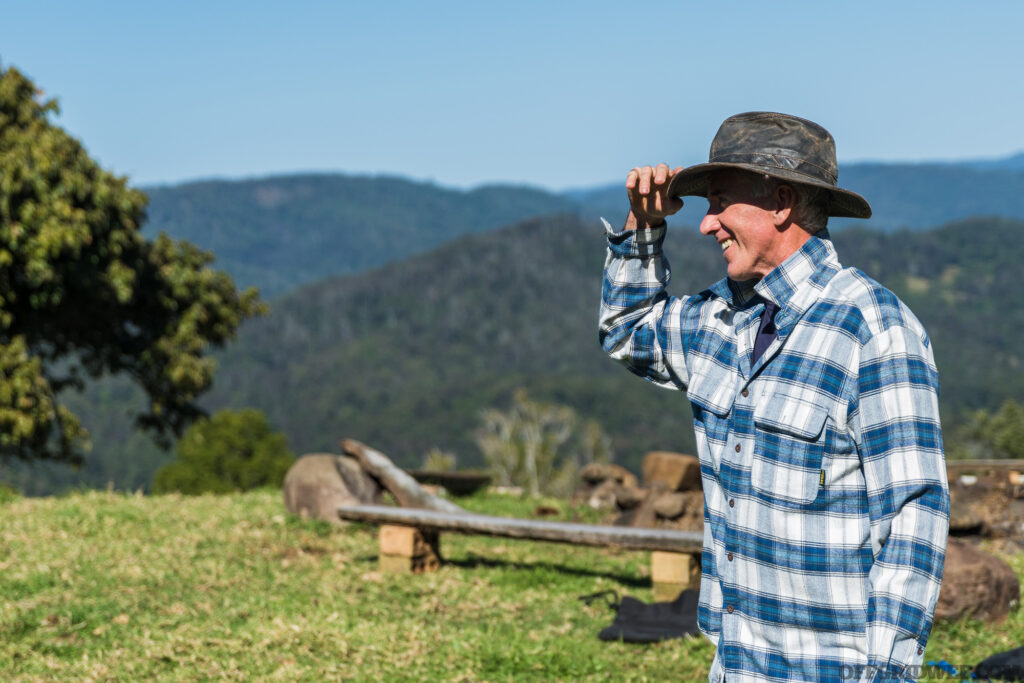
Above: Neighbors look out for each other in rural communities, and most are willing to lend a helping hand without asking for anything in return.
Settling In
Let’s say you determine that moving is the right option. You pack up your things and head out for a taste of the quiet life. What you do when you first arrive could make our break the entire experience. A key thing to remember is that with far fewer people, you have more physical privacy, but social privacy is almost non-existent unless you decide to turn in to a complete hermit (and even then, that may not work). The tricky thing about first impressions is that you only get one.
Sometimes your closest neighbors could be miles away, but even so, they may be used to a tightly knit community helping each other out. If they ever need a helping hand with a chore, or someone to watch over their pets on a vacation, they will be used to their neighbors being there for each other. It’s usually more expedient to ask a neighbor for help than to waste time and energy driving to town looking for a handy man or dog sitter. The good people living nearby aren't just humans occupying a residence, they are friends and family. Neighbors share struggles, lament each other’s losses, and celebrate good times together. And if someone has to move, they are sad to see them go. That being said, put yourself in the position of someone watching another individual or family move into the vacated home. If they were fond of that neighbor, they might resent the idea that you took their place. You will only cement those feelings if you show up and act in an ungracious manner.
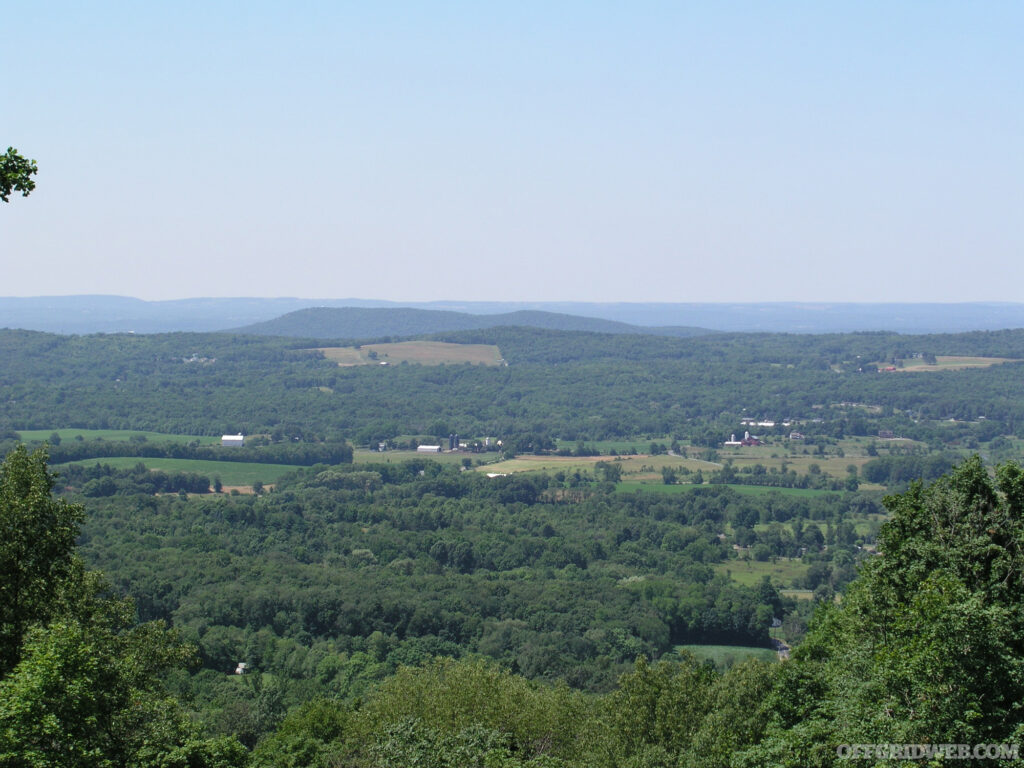
Above: The distance between homes may give the initial impression that nobody interacts with each other, but typically the opposite is true.
There is a common misconception, largely due to the entertainment industry, that people in rural areas are degenerate in some capacity. And if you hold this belief, do yourself a favor and purge it from your mind right now. It takes intelligence, independence and strength, both physical and emotional, to thrive in a place far from easy access to commodities. Owning a large property or a homestead takes a lot of hard work. As a newcomer to a rural community, being kind when you first arrive, and maybe even showing a pinch of humility, will go a long way.
Try to “read the room” for a while before getting comfortable with everyone in your new community. As mentioned earlier about privacy, everyone talks to each other and will know a lot about what is going on. It is possible that before you get a chance to meet someone for the first time, they may already know a little about you. You can use this to your advantage to hear what people think about others in the community and why. Then you can start to develop a better sense about who might be a good friend, or who you should keep your wife and kids away from. This may feel uncomfortable at first, especially if you are moving from a community where everyone largely ignores the densely packed humans around them. But discomfort will quickly fade, and you will find profound comfort in knowing who can be counted on in your community. Just be cautious not to perpetuate baseless gossip and rumors, since these behaviors often cause more harm than good.
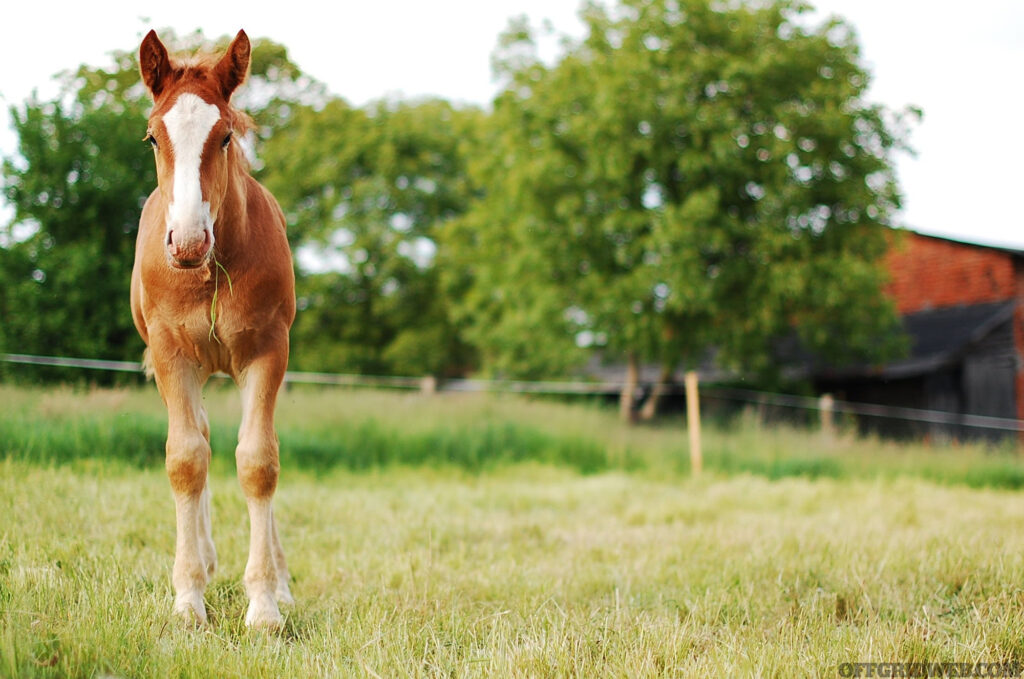
Above: Raising large animals takes much more dedication and hard work compared to walking a dog, or changing a litter box.
Closing Thoughts
Most importantly, trust your instincts. In the digital age, it’s easy to forget that we were once very social creatures. Talking to someone face-to-face is much different than sending them a text or interacting in the comments section. Our social skills are still there beneath the surface and will return quickly with repeated use. You've probably experienced that feeling that creeps up when someone approaches, and you can just tell if they are friendly, or if they do not have your best interests in mind. The reaction to either relax, or quickly get away from the situation is just one example of your latent social skills at work. When moving to the country, once getting settled in, you will be able to tell very quickly if the community you are living in is accepting of new members, or will be a tougher nut to crack.
Before moving to the country, putting as much thought into as many scenarios as you can will make a move exponentially more successful. Do your research, have a solid plan, and if moving to a rural area is the best option for you, dedicate yourself to being a great neighbor. Moving because of a knee-jerk response to a difficult time will only lead to a disastrous outcome. Being close to nature is known to be therapeutic, managing land of your own can be very rewarding, and anyone willing to put forth the effort may find a better quality of life.
Related Posts
- Safe Haven: How to Buy Your Ideal Bug-Out Property
- Inside a Prepper's Bug-Out Property
- What If Critical Supply Lines are Indefinitely Interrupted?
- Pounding Pavement: Man-Tracking Skills for Urban Environments
Related Posts

Survival Botany: Six Lifesaving Plant SpeciesSurvival botany can save your life in an emergency. Here we cover six of the most common edible plants in North America.
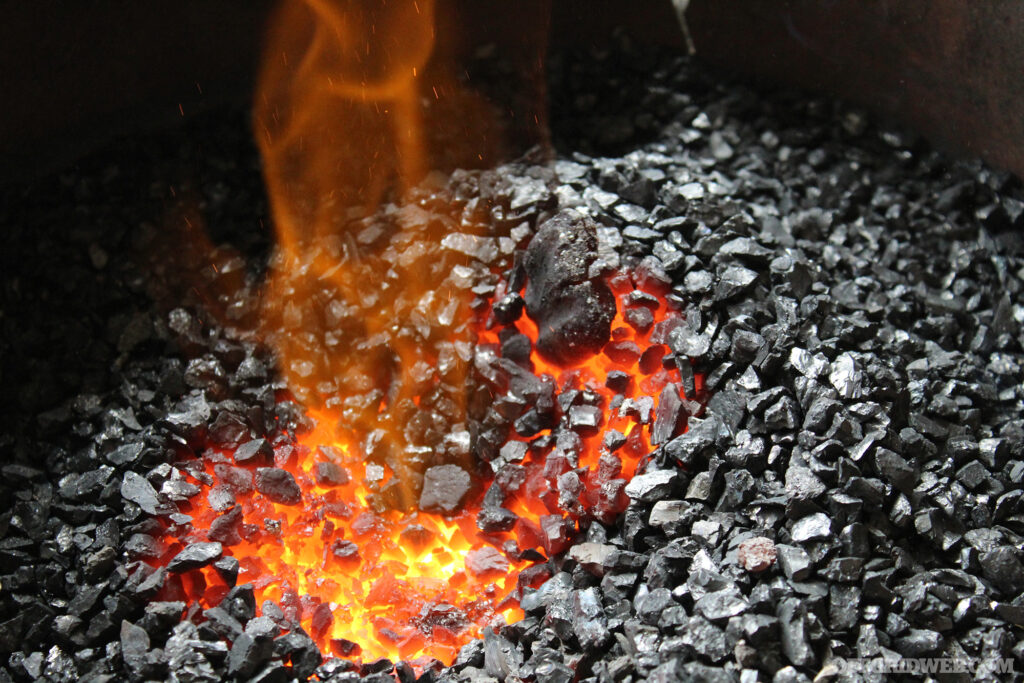
Learn How To Build Your Own ForgeCreate what you need, when you need it, by learning the basics of how to build your own blacksmithing forge.

The Knowledge Pantry: A DIY Survival EncyclopediaThe Knowledge Pantry is an offline digital stockpile of a huge variety of useful information for emergencies and survival situations.

DIY Drone Drop: How to Deliver Payloads with a Consumer DroneKnowing how to deliver payloads with your consumer drone can be a valuable skill. Read on as we explain the basics of drone drops.

Situational Awareness Evaluation: Part 2 – Threat IdentificationKeep an eye out for these subtle (and not-so-subtle) behaviors that can aid your situational awareness and threat identification skills.

Gateway Bronco's 1968 Bronco Built for SOTF Veterans' CharityThis truck was built by Gateway Bronco to raise funds for Special Operators Transition Foundation (SOTF), a non-profit that helps veterans.

Holosun DRS: New Red Dot + Thermal Hybrid OpticThe new Holosun DRS-TH and DRS-NV optics feature an AEMS-style red dot with a secondary thermal or digital night vision overlay function.

Water Purification: Common Contaminants and Methods to Eliminate ThemDoctor Joe Alton discuses several methods of water purification, something that is often taken for granted until clean water disappears.
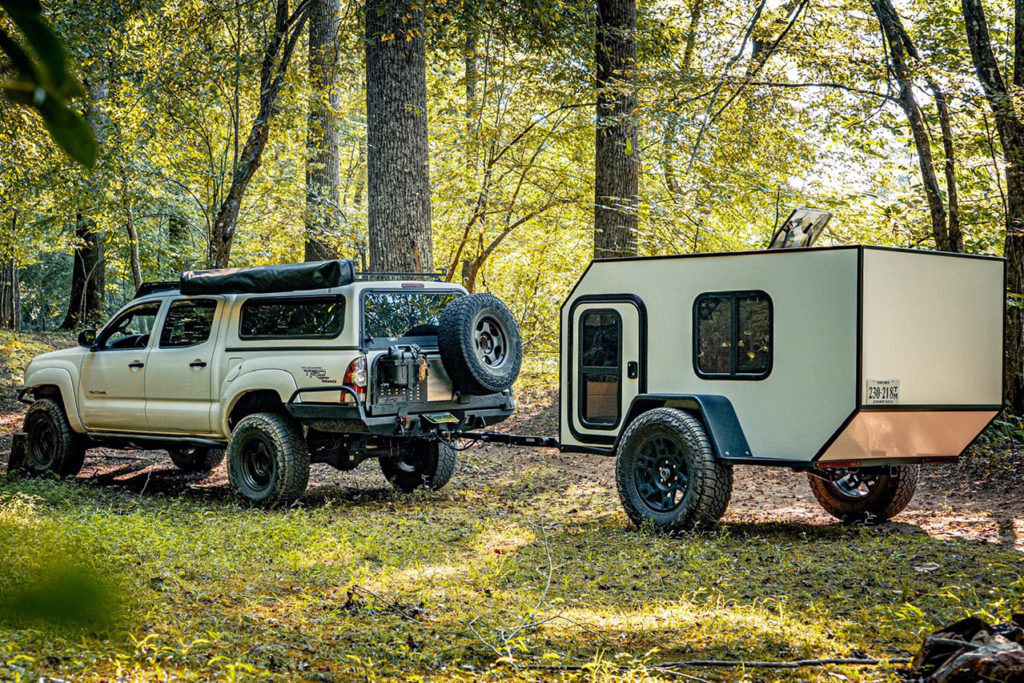
Video: DIY Overland Camper Build Time-LapseThis 10-minute time lapse video shows a DIY overland camper built from nothing but raw materials and a set of custom blueprints.
The post Run to the Hills: What to Consider Before Moving to the Country appeared first on RECOIL OFFGRID.
By: Patrick Diedrich
Title: Run to the Hills: What to Consider Before Moving to the Country
Sourced From: www.offgridweb.com/preparation/moving-to-the-country/
Published Date: Mon, 03 Jul 2023 18:02:16 +0000
-------------------------------------------------------------------------
Did you miss our previous article...
https://outdoorsnewswire.com/survivalist/so-if-the-dollar-collapses-what-happens-to-my-house
 CampingSurvivalistHuntingFishingExploringHikingPrivacy PolicyTerms And Conditions
CampingSurvivalistHuntingFishingExploringHikingPrivacy PolicyTerms And Conditions
